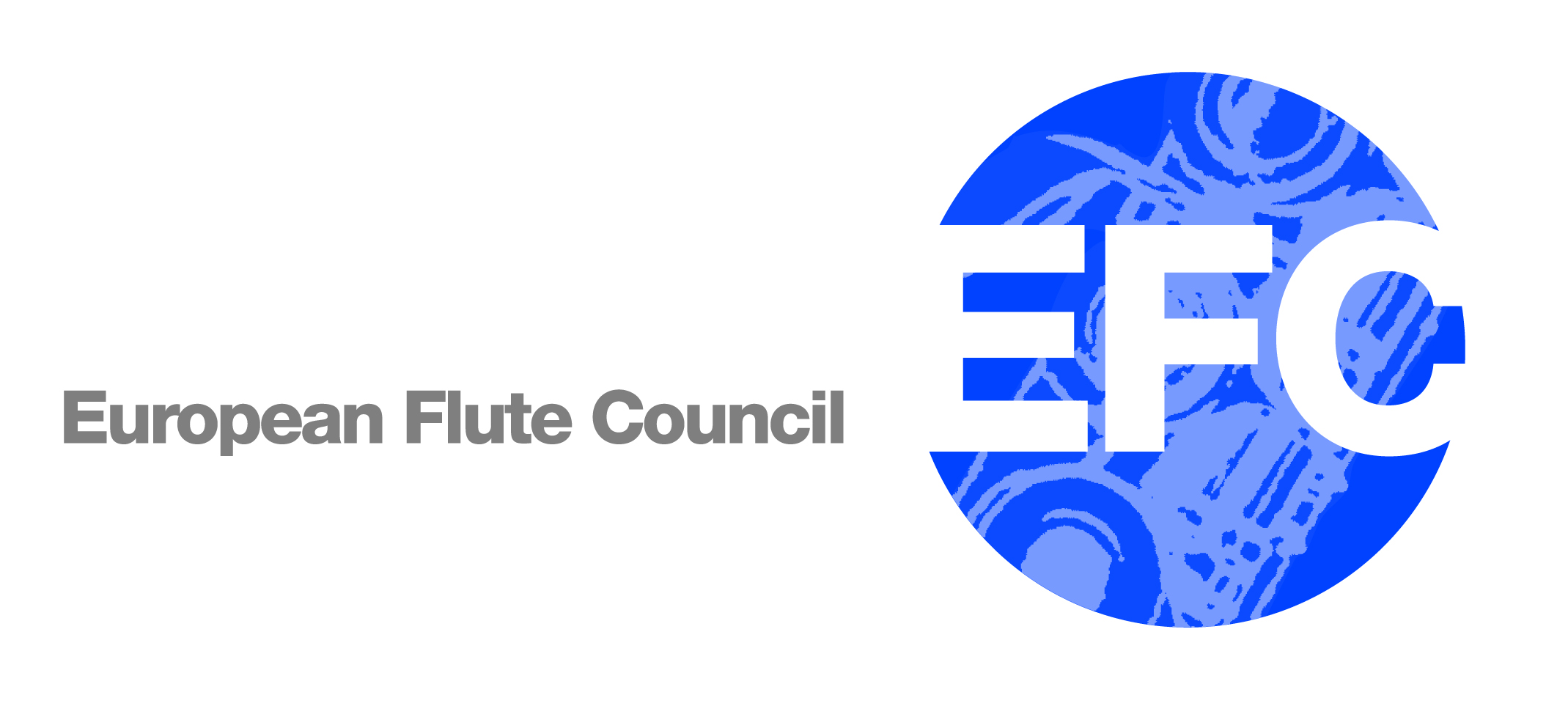About Us

New status
EFC NGO statement
We are pleased to announce that at the end of December 2024 the European Flute Council (EFC) changed its formal status to that of an NGO (Non-Governmental Organisation) based in Sweden. Since 2015 the EFC has been able to support multinational events and host an online festival, but now that the organisation is officially registered it is hoped it will be much easier to attract funding (for instance from the EU’s Erasmus Plus programme) and to more proactively and strategically engage with the European flute community. As part of the EFC’s rebrand, the official website will be developed, and we will in due course be reaching out via our networks to invite organisations and individuals to support our work in the future.
EFC Constitution
Goals - Mandates
Membership of the European Flute Council (EFC) is open to all European flute associations. Its goal is to work through collaboration and coordination to support the quality of flute playing and teaching at all levels throughout Europe via conferences, shared expertise and advocacy.
The Council believes that it is vital that national educational systems allow individuals at all levels to develop their full potential. It is therefore the EFC’s aim, within the field of flute playing, to provide active support for strategies to improve such systems.
The EFC will work to encourage strategic links between national education systems and member organisations’ educational programmes, at the same time working to facilitate and
stimulate the exchange of best practice internationally.
Organisation - Guidelines
All national and European flute societies and associations are invited to nominate one representative member and one deputy member of the EFC per country.
The EFC will be notified of the appointments by the end of February each year. With this notification should come a photograph and biographical summary for each delegate of no more than 150 words for the EFC website.
The EFC has no budget of its own. Each national organisation must cover the xpenses of their own delegates.
The EFC will organise a meeting every year to name a new board and an annual conference to be held no later than the last day of April, called the European Flute Council Conference (EFCC).
At this conference five people will be selected to form the board, whose responsibility it is to organise the annual EFC activities, with active help from other delegates.
After the annual conference, delegates will report back to their national organisation and forward questions from the conference to their membership.
Activities
Board
The board will meet twice a year, and one of these meetings will be held at the EFCC.
The geographical locations for these meetings will rotate between the board members’ home countries.
A chair and a secretary for the present and subsequent meeting will be selected in advance each time.
The board will plan the EFCC and plan and carry out other initiatives or common projects decided at the EFCC. The chair and secretary are responsible for arranging locations for the meetings and for suggesting options for accommodation and travel to the remaining board members.
Since the EFC does not have any financial means, it is up to each member organisation to fund the expenses of their representatives and members.
Every board meeting will be documented through a protocol which will be published on the EFC website.
Annual conference (EFCC)
The conference will be held annually in various member countries. Each national organisation will be invited to present (according to EFC’s main goals and objectives):
- National projects
- National initiatives
- Reports of current status
- Suggestions for common EFC projects
The conference will enable discussions and presentations to promote regional and common artistic and pedagogical projects. The conference will also discuss how the EFC, on the member organisations’ behalf, can provide active support for development of applications for funding for artistic and pedagogical projects.
Information
Member organisations’ national activities will be publicised through the EFC website as well as through e-mail based newsletters.
Coordination
The EFC will seek to help their members in coordinating regional and common projects. ‘Coordination’ can include the organisation of meetings and the facilitation of national or multi-national bids for international funding.
